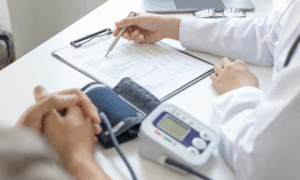1. Why do children need regular health check-ups?
Regular health check-ups help monitor a child’s overall development and detect abnormalities early for timely intervention. When a disease is detected in its early stages, treatment will be simpler and more effective.
Also helps children:
- Disease prevention: Children are kept up to date on vaccinations and given age-appropriate care instructions.
- Growth & Development Assessment: Ensure children reach age-appropriate physical, intellectual, behavioral and social developmental milestones.
- Accompanying parents: Doctors advise on nutrition, sleep, and child safety, help parents recognize their child's skills at each stage, and answer questions during the child-rearing process.
2. What does a periodic health check-up include?
A routine check-up is not a preliminary check-up but a process. comprehensive monitoring of children's health and developmentEach examination brings many practical values:
- Physical growth assessment:
- Measure weight, height, head circumference, pulse and blood pressure.
- Draw growth charts to detect malnutrition, overweight, obesity or developmental abnormalities early – even if current indicators are normal.
- Assessment of nervous system development:The doctor will observe, talk to the child and use screening tests to assess motor, cognitive, emotional, language and social communication skills. Thereby determining whether the child has achieved age-appropriate developmental milestones or not. Children can:
- Develop according to age.
- Reached the milestone earlier than usual.
- Delayed development – may be due to individual differences, but may also be an early sign of mental retardation. Needs to be monitored and early intervention if needed.
- Behavioral disturbance or signs suggestive of autism spectrum disorder.
- General body examination:
- Head, eyes, ears, nose, throat, teeth and mouth examination.
- Listen to the heart and lungs, examine the abdomen, spine, hips and limbs.
- Early detection of potential health problems such as congenital heart disease, scoliosis, hip abnormalities...
- Check important functions:
- Measure hearing and vision according to age.
- Early detection of problems that may affect later learning and communication.
- Vaccination and disease prevention:
- Update vaccinations by age.
- Comprehensive consulting: nutrition, sleep, oral hygiene, exercise and safety at home and school.
- Test when the doctor suspects an abnormality or the child is at risk of disease:
- Blood test.
- Ultrasound or other imaging tests.
- Personalized consultation for parents:
- Doctors talk directly with parents, answer questions and provide appropriate care for each child.
3. Regular health check-up schedule is as follows:
Younger children need more frequent check-ups because growth and development occur very rapidly in the first two years of life.
- Immediately after birth: usually the baby will be examined by a pediatrician at the hospital.
- Go home after birth within the first few days (usually 3–5 days).
- 1 month old.
- 2 months, 4 months, 6 months, 9 months, 12 months, 15 months, 18 months, 24 months, 30 months.
- After 3 years old: check-up once a year until 18 years old.
- In addition to these visits, you can come in at any time if you have concerns about your child's development.
Regular check-ups usually include:
- Check height, weight, head circumference, pulse and blood pressure to assess the child's physical development.
- Check hearing and vision.
- Comprehensive examination: head, ears, nose and throat, listening to heart and lungs, examining abdomen, spine, hips and legs.
- Assess motor, language, and social development. Some visits may include screening for developmental disorders or autism spectrum disorders.
- Vaccination advice and updates by age.
- Blood tests or imaging studies as needed.
- Advice on how to take care of healthy children: nutrition, sleep, oral hygiene, exercise, safety.







